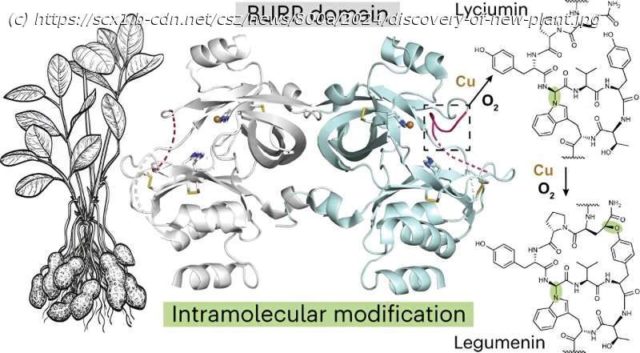University of Michigan researchers are celebrating their discovery of a new plant biochemistry and its unusual ability to form cyclic peptides—molecules that hold promise in pharmaceuticals as they can bind to challenging drug targets.
University of Michigan researchers are celebrating their discovery of a new plant biochemistry and its unusual ability to form cyclic peptides—molecules that hold promise in pharmaceuticals as they can bind to challenging drug targets.
Cyclic peptides are an emerging and promising area of drug research.
The new study, led by U-M College of Pharmacy researchers Lisa Mydy and Roland Kersten, revealed a mechanism by which plants generate cyclic peptides. The research is published in the journal Nature Chemical Biology.
Mydy identified the new plant protein fold and its novel chemistry, which she said had never been seen before. The protein can generate cyclic peptides, one of which holds potential as an anti-cancer drug.
«It’s extremely exciting,» said Mydy, a postdoctoral research fellow in the Department of Medicinal Chemistry. «This type of discovery doesn’t happen too often.»
Mydy and colleagues studied the biosynthesis of a class of macrocyclic peptides found in plants and known for their potential use as therapeutic drugs. They identified a «fascinating new protein fold that has a really unusual mechanism to form cyclic peptides. It is a new biochemistry that we have not seen before,» Mydy said.






